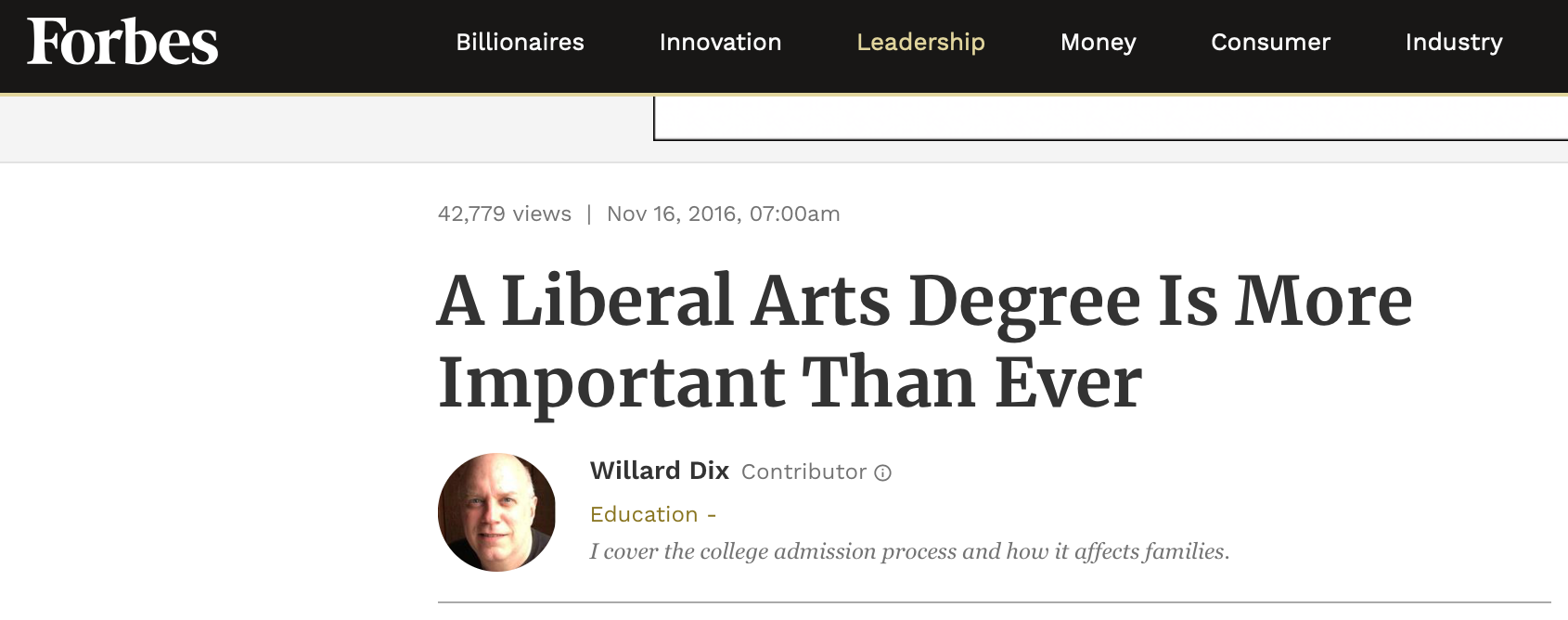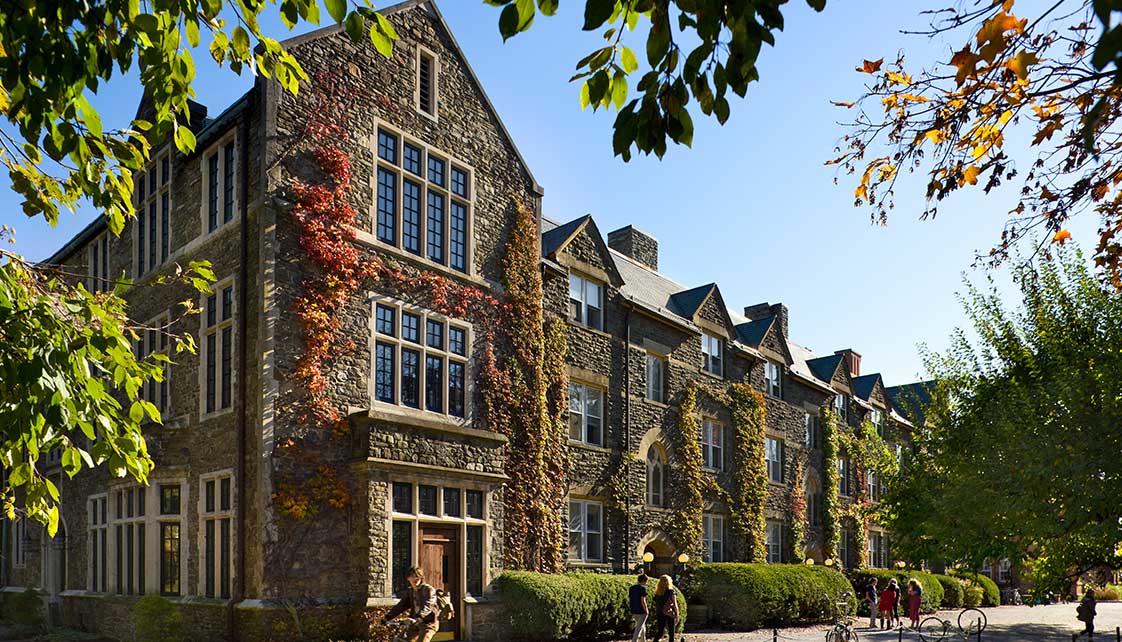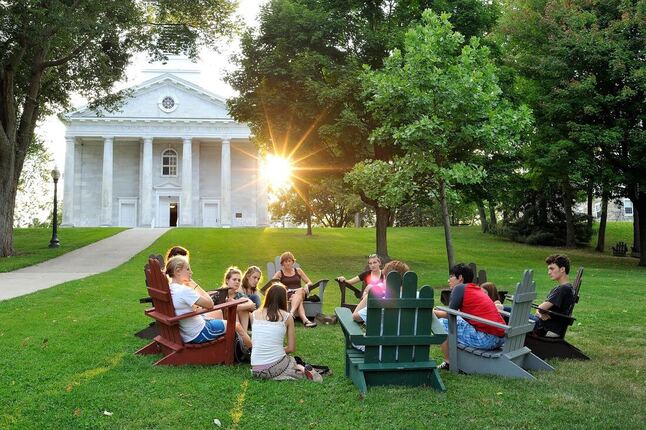|
After two and a half years of running College Quo, I've realized that there is a serious gap in how Jamaican (and international) students approach the university selection process. Students generally focus on either 'brand name' private universities (Ivy League, MIT, Stanford, NYU and the works) or large public universities (USF, UCLA, Berkeley, UNC Chapel Hill etc). While these can be great options for you, they are definitely not right for everyone. A small, liberal arts college (LAC) could very well be exactly what you are looking for! When I began looking at universities, I too fell in love with this 'brand name' idea. My focus fell directly on the Ivy League, and other top-tier large schools like Duke and the University of Chicago. After I went to a college talk with Amherst, Wesleyan and Williams (all small LACs) I switched my focus to liberal arts colleges and applied almost exclusively to these schools - Bowdoin, Bates, Colby, Grinnell, Macalester, Pomona etc. I'm SO happy that I made that decision (not only because LACs tend to be extremely generous in giving financial aid to international students - but that was a big factor), and this article will explore why. UNDERSTANDING LIBERAL ARTS Firstly, we need to define liberal arts. Many think of it as a political term, but the idea in academia is more akin to 'liberating' the mind and broadening its horizons. As an IvyWise ARTICLE states: "Liberal arts colleges tend to be smaller institutions that focus on undergraduates and teaching. The hallmarks of liberal arts colleges, such as Bowdoin, Williams, and Amherst, are [characterized by] small class sizes, close access to professors, undergraduate research opportunities, and a broad-based academic program in in the core subject areas of mathematics, the social sciences, and the hard sciences". At LACs, it is not WHAT you study that matters, but HOW you approach topics and dissect ideas. There is an emphasis on writing and communicating effectively. It teaches you how to digest information and create solutions, as well as how to think critically and analytically. An ARTICLE published by Dartmouth College (the only Ivy League LAC), states that: "In today’s landscape of technological and social transformation, graduates must be prepared to deal with complexity, diversity, and change. What curriculum is better suited to develop such abilities than one that offers a broad understanding of the world with mastery of at least one field, the capacity to think critically and creatively, powerful communication skills, an ease at working in teams, scientific literacy, the ability to engage the arts and humanities, and the development of principled leadership skills? In fact, the liberal arts have never been morerelevant. As Dartmouth has shown time and again, the liberal arts education is an incubator for leadership and impact on the world" THE ACADEMIC EXPERIENCE I go to Bowdoin College, a small liberal arts college in the quaint little town of Brunswick, Maine. Even though I'm an anthropology major at Bowdoin, I've taken classes in computer science, history, legal studies, neuroscience, German, philosophy, religion, economics, dance, gender studies, Latin American studies, Asian studies and the list literally GOES ON. My classes have had names like "Carnival, Race & Gender in Brazil", "Mystery of the Nation State", "Into the Wild" and my personal favourite "Dance and the Politics of Sexiness". I've written papers on topics like "The ‘Sacred Whore’: The Incarnation of Pomba Gira in Brazil’s Sex Work Industry" (which, much to my parents' dismay, focused on the intersection of prostitution and witchcraft in Brazil) and "Jamaican State Formation: Capitalism, Ethnonationalism and Cultural Identity". The point is, if you are intellectually fearless, curious and adventurous and have a wide variety of passions that you want to explore, liberal arts might just be what you are looking for! CAREERS You might be wondering: "How will these classes give me knowledge that will help me in the 'real world'? Will they apply to my job or future career?" The answer is yes and no. Most classes in fact will not directly give you knowledge that you can apply to your future career but what are far more valuable assets (in my opinion, at least) in the 'real world' are the critical thinking capabilities and communication skills that you receive. Yes, a pre-professional major like marketing or public relations might give you some important jargon or technical skills that will serve you well, but if you think long term, it is the 'ability to learn just about anything' that liberal arts teaches you that could be even more powerful. When I came to Bowdoin, I was determined to major in economics. I needed to have a job, right? Econ seemed practical, and I was already 'decent' at math (not the best, but I didn't loathe it). After I took a trip with Bowdoin to the Bay Area to visit some of the world's top tech companies like Apple, Google, Facebook, Airbnb etc, my mindset completely changed. At Apple we met with Phil Schiller, the Senior Vice President of Apple Marketing Worldwide and a member of Apple's Executive Team, who talked with us about the value of the liberal arts. His son went to Bowdoin (that's why he agreed to meet with us) and long story short, his words put my mind at ease regarding how marketable my degree would be. The tools that you gain from attending a LAC are immensely powerful, and it's up to you to gain the necessary experience and 'hard skills' to differentiate yourself. In essence, it's not what you know but how you learn that sets you apart. STEM? A huge misconception about LACs is that they're meant for the "soft subjects" like history, sociology and english, but are not for STEM majors. This is definitely not true. Many LACs are especially strong in the sciences (in fact, Pomona, Bowdoin and Dartmouth, all of which are small LACs, are all ranked in the top 25 universities in the U.S for Biology according to NICHE). If you want to be an astrophysicist but also want to understand Nietzsche's philosophical theories, or a mathematician who also studies contemporary dance, then look no further than the liberal arts. While engineering options may not be available at most liberal arts colleges, many schools have 3-2 or 4-2 degree programs with other engineering schools. Bowdoin has a 3-2 program with Dartmouth and a 4-2 Program with Columbia, and schools like Colby, Amherst, Bard and Davidson have similar programs! (Note 3-2 or 4-2 engineering programs entail 3 or 4 years at an LAC and 2 years at an engineering school. At the end, you get two degrees: a liberal arts BA and an engineering MS or BS). THE COMMUNITY
LACs are characterized by their smallness in size and the focus on undergraduate students. Most LACs don't have graduate schools (Dartmouth is the only exception that comes to mind), so professors are fully focused on the undergrad experience and you will not be taught by a grad student, as you likely will be at most large universities. Classes are also small, and there is an emphasis on collaboration and discussion-based learning. The biggest class I've had at Bowdoin had around 45 students (that's what 'large intro classes' are like here) and the smallest had 4 students. Most of my classes have between 12 and 20 students, and so you really get to know your professors and peers. The campus community is tight-knit, with only around 2000 students total. You see familiar faces constantly - in classes, in the dining halls, or at parties. I have coffee or lunch with my professors often, and my roommate actually had a professor who called her every Monday and Wednesday morning to wake her up for class (not kidding). Some professors even invite their entire class to their house for dinner at some point during the semester. All of my professors and deans know me by name, and they actually care about their students' well-being. The sense of community is strong, and if you're thinking about grad school then the close student-faculty relationship can be extremely valuable (professors will use their connections, write strong letters of recommendations etc). MONEY MATTERS Another selling point of LACs is that they tend to be some of the most generous universities for financial aid (to both domestic AND international students). While they are all need-aware for international students, with the exception of Amherst College, if you get in they will meet 100% of demonstrated need. In the U.S there are 18 universities that are need-blind (for domestic students) no-loan and meet 100% of demonstrated need. 6 LACs are on this list: Pomona, Swarthmore, Bowdoin, Colby, Amherst and Davidson. The rest are Ivy League universities and other top-tier schools. Other schools like Grinnell, Macalester, Bates, Bard, Williams, Middlebury and Vassar are extremely generous to international students (though their financial aid packages may include a few small loans). Still, it's far from easy to get in to these schools. They are highly competitive and most have acceptance rates below 10% (and even lower for international students who need financial aid). But that's what COLLEGE QUO is here for. ON THE FLIPSIDE While this article focused on the pros of going to an LAC (and I know I'm biased), it wouldn't be fair to fail to mention the downsides; because they do exist! For one, although LACs (particularly the top-tier ones like the NESCAC schools and other peer institutions) are highly regarded in academic circles and with most employers in the US, there is definitely a lack of awareness amongst the general public/ employers internationally. I can't explain how many times I've been asked in Jamaica "What's Bowdoin? Is that a community college?" or "You're an anthropology major? How will you get a job with that?". It's frustrating, but I honestly didn't know what Bowdoin was either before I applied (or most other LACs for that matter)! Another downside of a liberal arts degree is the potential lack of technical or career-specific skills. Unless you do something like computer science, chances are that your major and job after graduating from an LAC don't really align. Think about the scenario where you're applying to publicity jobs with your English major, and competing against people with actual degrees in publicity. This is where you have to gain experience to set you apart (summer jobs and internships, research etc) which at LACs aren't hard to do because of the bounty of resources that they pump into ensuring that students are job-ready and that their liberal arts degree won't hold them back. Bowdoin gives $5000 grants to approximately 100 students per year to allow them to get paid to do an unpaid internship (yes, you read that correctly). There are also countless research grants and opportunities to gain funding to pursue an interest or passion. A lot of other LACs have similar initiatives. It's up to you to take advantage of these opportunities and gain some hard-skills while on the job. From what I've heard from employers who often come to Bowdoin to recruit, while liberal arts grads may lack some hard, technical skills, their ability to communicate effectively, think critically and learn quickly make them highly employable. OVERALL A liberal arts degree is a really great tool to have under your belt. That said, it's not for everyone! Know yourself, know what you want from your college experience and go after it - whatever it may be.
1 Comment
20/1/2024 06:36:57 pm
How does the author's diverse academic journey at Bowdoin College, including classes in anthropology, computer science, dance, and gender studies, reflect the benefits of pursuing a liberal arts education? regard <a href="https://it.telkomuniversity.ac.id/">Telkom University</a>
Reply
Leave a Reply. |
Categories
All
|


